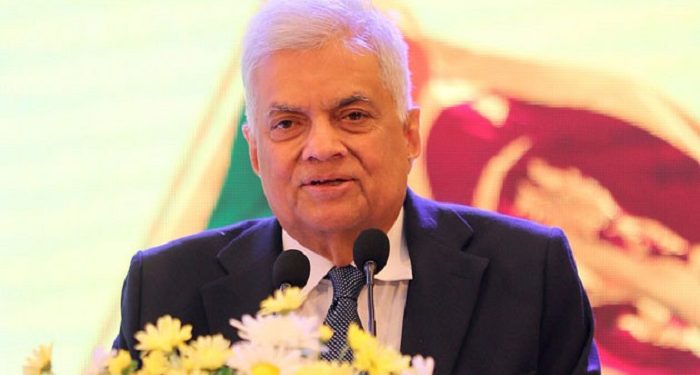President Ranil Wickreme-singhe yesterday called for inclusive discussions on the 13th amendment to the constitution
He made this appeal while addressing the all-party meeting chaired by him to discuss the National Reconciliation Program together with the North-East Development Plan.
The meeting, which took place last evening at the President’s Secretariat, saw the participation of leaders and representatives from both Government and opposition parties in parliament.
Addressing those gathered the President stressed that confining discussions on the 13th Amendment solely to Tamil parties is inadequate. He emphasised that this matter has far-reaching implications and impacts the entire nation, making it essential to engage all stakeholders in the dialogue.
During the meeting, President Wickremesinghe reflected on the limitations of his authority as well as that of the previous seven Executive Presidents. He emphasised that the power to pass new laws to address existing problems solely rested with the Parliament.
While he expressed his commitment to bringing forth relevant proposals for the betterment of the country, he asserted that the responsibility of implementing these proposals lies with all the representatives in the Parliament. He acknowledged that he alone couldn’t achieve the necessary changes with his single vote, emphasising the importance of collective effort and cooperation among all parliamentary members.
The President also drew attention to the geographical distribution of provincial councils, with seven out of the nine being situated in areas predominantly inhabited by the Sinhalese community. Acknowledging the importance of maintaining the provincial council system, he highlighted the significance of addressing the shortcomings that have been encountered thus far.
To improve the system, he put forth a suggestion that involved granting provincial councils more authority over certain subjects currently under the central government’s jurisdiction. This would include empowering them to oversee grassroots activities such as agriculture and tourism.
Wickremesinghe urged all parties to engage in collective discussions regarding the provision of police powers to the Provincial Councils, as specified in the 13th Amendment of the Constitution.
Additionally, President Wickremesinghe proposed a novel arrangement that would enable members of the Provincial Councils to hold concurrent positions and be appointed as Members of Parliament. Similarly, members of Parliament would have the opportunity to serve as members of the Provincial Councils.
Prior to the meeting with Wickremesinghe, the ruling party held a crucial meeting with its leader Mahinda Rajapaksa at his official residence in Colombo. Addressing the media following the party meeting, Sri Lanka Podujana Peramuna (SLPP) General Secretary Sagara Kariyawasam said the mandate received by former President Gotabaya Rajapaksa was to introduce a new constitution and protect the country’s unitary status.
“At this juncture, the economy must be prioritised,” he said firmly. “We hope to express our view that bringing in unwanted issues now is unsuitable,” he added.
The all-party meeting was attended by Prime Minister Dinesh Gunawardena, Speaker Mahinda Yapa Abeywardena, Opposition Leader Sajith Premadasa, Former President Maithripala Sirisena, ITAK Leader and Member of Parliament R. Sampanthan,ITAK spokesman M. A. Sumanthiran,TELO Leader Selvam Adikalanathan,PLOTE Leader Sitharthan, General Secretary of the Sri Lanka Podujana Peramuna and Member of Parliament Sagara Kariyawasam and Members of Parliament including Dallas Alahapperuma, Wimal Weerawansa, Gevidu Kumaratunga, Vasudeva Nanayakkara, Udaya Gammanpila, Rear Admiral Sarath Weerasekera, Athuraliye Rathana Thero, Weerasumana Weerasinghe, Anura Priyadarshana Yapa, C.V. Vigneswaran, and Lakshman Kiriella among others. The National People’s Power and several other parties however chose to not attend the meeting.


